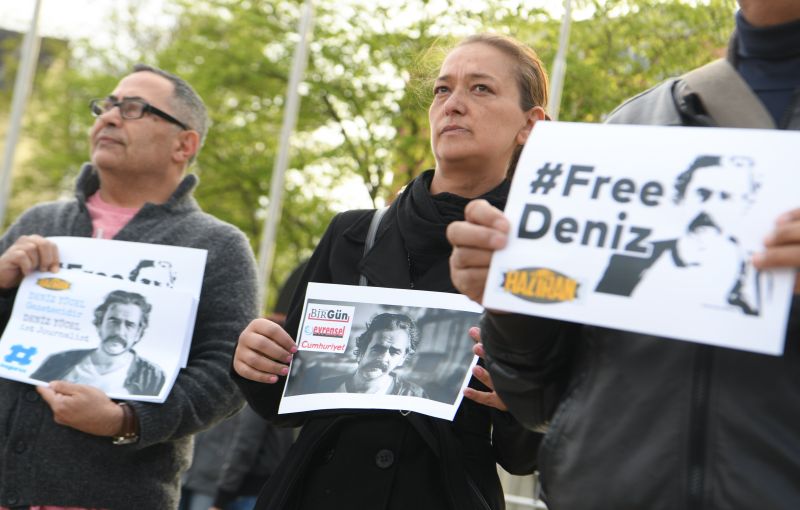In Turkey and elsewhere, democracy is not just majority rule
Last week, I attended a meeting of the Frankfurt area’s independent Round Table for Intercultural Media-Dialogue. The topic was how free media is being suppressed in Turkey, and my summary of that depressing debate is on our website. In this blogpost, I’ll add some thoughts concerning another part of the discussion. A journalist from a major German TV station made some points I profoundly disagree with, and I’d like to tell you why.
He said he had interviewed Turkish people living in Germany who voted in favour of Turkey’s new constitution last month. He insisted that the people he had talked to, were friendly and well-behaved and not rabid right-wing extremist. He felt they deserved appreciation. He added that these “yes” voters believed that the new constitution would not restrict democracy, but rather “further develop” it. Finally, he argued that Turkey is not only in a deep crisis, but also a very complex country, so outsiders should refrain from commenting.
This kind of reasoning certainly serves President Recep Tayyip Erdogan. At the same time, it betrays a frightful lack of understanding of basic political issues.
- Right-wing radicals are often friendly and well-behaved. So are left-wing radicals by the way. It is silly to believe that extremists behave in extreme ways and display violent attitudes at all times. German journalists should know better. Decades ago, the philosopher Hannah Arendt wrote a very good book called the “Banality of evil”. It was about Adolf Eichmann, a genocidal Nazi, who was put on trial and sentenced to death in Israel in the early 1960s. Arendt did a brilliant job of showing that Eichmann always managed to live what looked like a most respectable life to most people, even though he was a brutal mass murderer.
- Democracy is not simply about a majority getting its way. It is about checks and balances too. Otherwise, any momentary majority will be tempted to craft rules in a way that ensures that it will always stay the majority and can never be displaced by a different majority. Erdogan’s new constitution boosts the power of the head of state, weakening the power of legislators, judges and cabinet members. It makes it easier for the president to govern by decree and declare a state of emergency. In spite of introducing term limits, the new constitution reduces checks and balances and seems desigend to keep Erdogan in power until 2029.
- The referendum itself was not held according to democratic principles. The government dominated media coverage, and opponents were hardly able to voice their views in public. Many newspapers, TV stations and other media outlets had been shut down and many journalists were detained. Important opposition leaders, moreover, were in jail. Without free debate, there can be no free choice.
- It is true that Turkey is in crisis. But that does not mean that a new constitution is needed. Indeed, the government declared a state of emergency after the failed coup attempt last summer, and it has been ruling with enhanced administrative powers (and reduced civil liberties) ever since. Emergency rule is the constitutional provision for coping with extraordinary crises. It is supposed to be temporary, not permanent. In ancient Rome, a dictator could be appointed for six months in times of crises. During that time, he would have absolute powers. After the six months, Rome became a republic again, ensuring that all citizens had a say in public matters. Ancient Rome was not a real democracy – women did not have citizens’ rights, and slaves did not have any rights at all. The republic ended, however, when Caesar and Augusts ensured they were made “dictators for life”. Erdogan has not gone quite that far, but that is the direction he is moving in.
- It is true that Turkey is a country with a complex history and a multi-layered society. But that is true of all big countries. Human rights are universal principles that have been adopted by the United Nations. They are therefore not a western imposition. They certainly require international monitoring. Arguing that any given country might be to complex for international scrutiny ultimately implies that human rights are not universal.
I believe Turkish voters who opted for Erdogan’s constitution deserve to be taken seriously. And I do not think it makes sense to demonise them. Many of them are certainly deeply worried about Turkey’s future. But accepting that they are worried and giving credence to Erdogan’s propaganda are two different things. A professional journalist should be able to tell the difference between feeling empathy for individual persons and endorsing an autocrat's propaganda.










